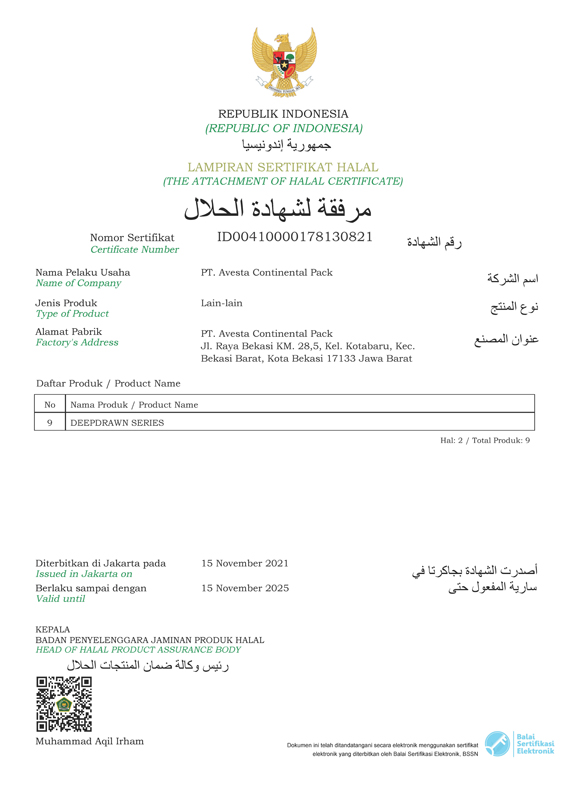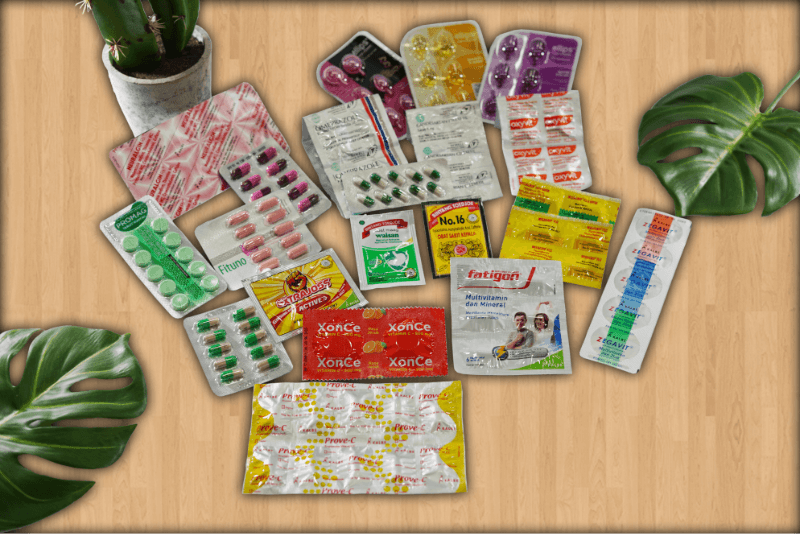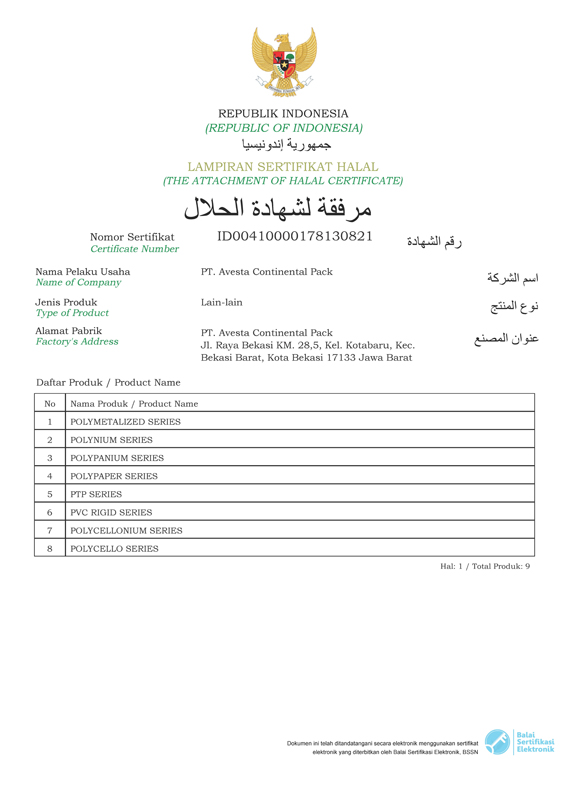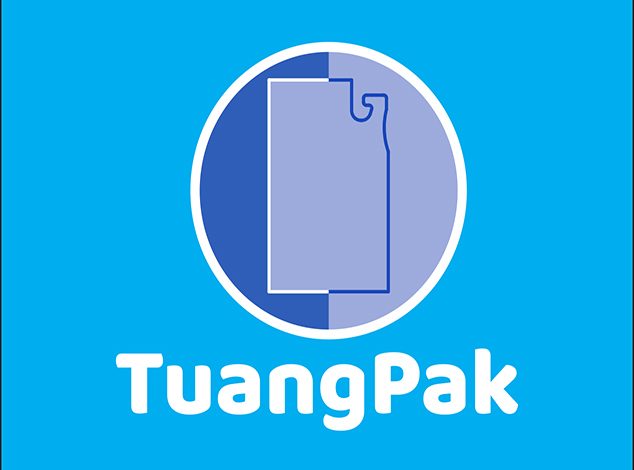Halal certification is an acknowledgment of the halal of a product issued by the Halal Product Assurance Agency (BPJHP) based on a written halal fatwa issued by the Indonesian Ulema Council (MUI) which is an integrated management system that is compiled, implemented and maintained to regulate Raw Materials, Production Processes, Finished Products, Human Resources and Procedures in order to maintain the continuity of the halal production process in accordance with Law No. 33 of 2014 concerning Guaranteed Halal products. The benefits of implementing Halal Certification are to guarantee the halal of products during the validity of the Halal Certificate issued by BPJPH based on a written fatwa from the MUI, raise internal awareness to have guidelines for the sustainability of the halal production process, provide guarantees for customers and end users and prevent cases of non-halal for halal certified products.
The regulations regarding this halal regulation are listed in Law No.18 of 2021 concerning Food, Government Regulation No. 86 of 2019 concerning Food Safety, Regulation of the POM Agency No. 20 of 2019 concerning Food Packaging and Regulation of the Minister of Industry No. 24/M-IND/PER/2/2010 of 2010.
Based on HAS 23000, it states that there are two halal certification requirements, namely by implementing the 11 Halal Assurance System Criteria (HAS 23000:1) and Fulfilling Halal Certification Policies and Procedures (HAS 23000:2).
By getting Halal Certification, we guarantee that every product we produce is halal and has gone through a good and correct process in accordance with applicable procedures.




